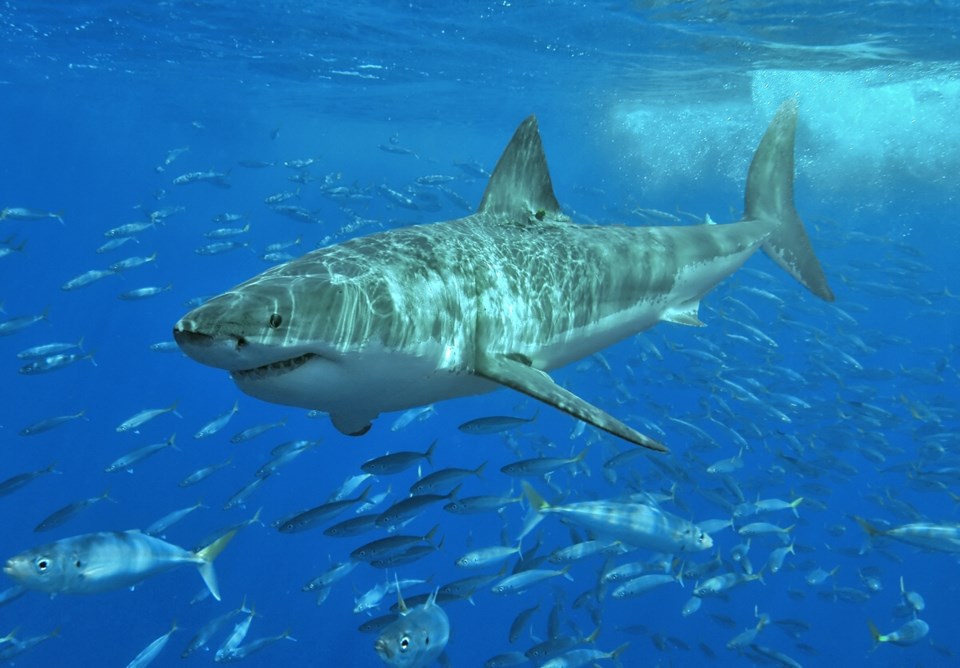Great white sharks might appear more often in B.C. waters as climate change warms the northern Pacific, a sign of a major environmental shift, scientists say.
William Cheung, associate professor of University of B.C.’s Institute for the Oceans and Fisheries, said climate change will likely cause the great white to expand its range to the north.
The great white has already been recorded a few times in B.C. waters over the past few decades, Cheung said. It usually doesn’t stray far north of California, but if the Pacific continues to warm, expect more sightings on the B.C. coast.
Cheung’s work is based on computer models that show a general expansion northward of southerly species such as the great white.
He said it is not certain what will happen to the six sharks commonly found in B.C. waters — the salmon shark, the blue shark, the Pacific sleeper shark, the brown cat shark, the spiny dog fish and the tope (soupfin) shark.
Cheung said sharks worldwide, especially tropical species, will come under pressure because of climate change. Warming will likely shrink their habitat range, as over-fishing depletes their numbers.
“That really tells us to think even more carefully about the need to find a proper conservation plan for some of these shark species,” Cheung said.
John Volpe, of the University of Victoria’s environmental studies department, agrees with the UBC predictions.
He said, however, that it’s important to think of appearances of creatures such as the great white shark as episodes, instead of a northbound wave of southerly species and warmer water.
With ocean warming, Volpe said, it’s most accurate to consider geographic fingers of warm water extending and receding — and sometimes even getting pinched off in warm-water “bubbles” that can trap species.
This movement and shifting of ocean temperatures creates ecological and environmental uncertainty and instability.
Volpe said appearances of warm water species, like the great white, are advance notices of an ecological “destabilization” — the result of which nobody can predict.
It is a safe bet, however, that these warming episodes will ultimately lead to a loss of biodiversity, rather than a redistribution of world species.
“In these periods of constant change, even native species become destabilized and their long-term viability is no longer assured,” Volpe said. “The physical environment upon which everything depends becomes destabilized.
“The great white shark is big and scary, but it’s actually a harbinger of a change in fundamental ecological processes,” he said.



